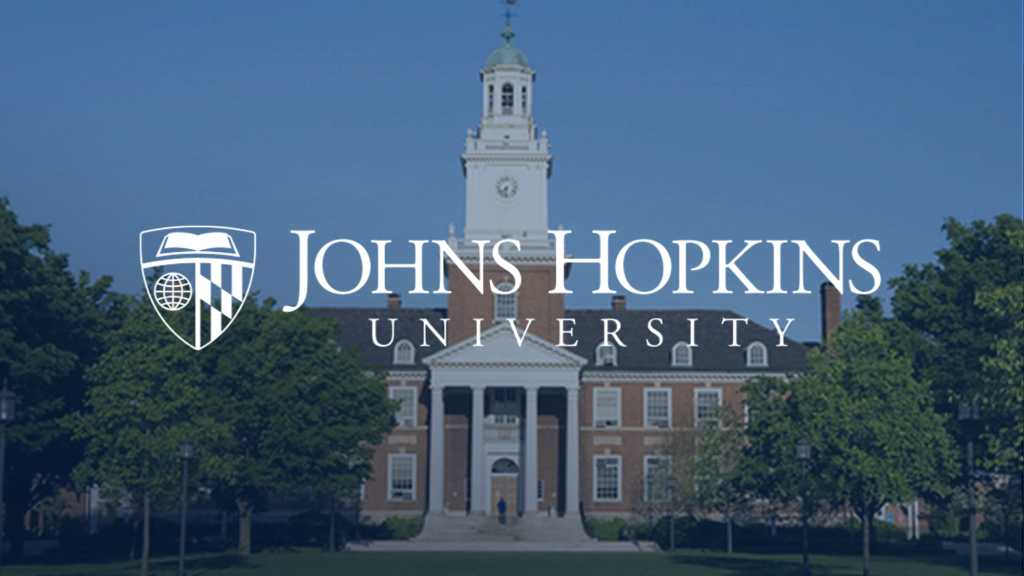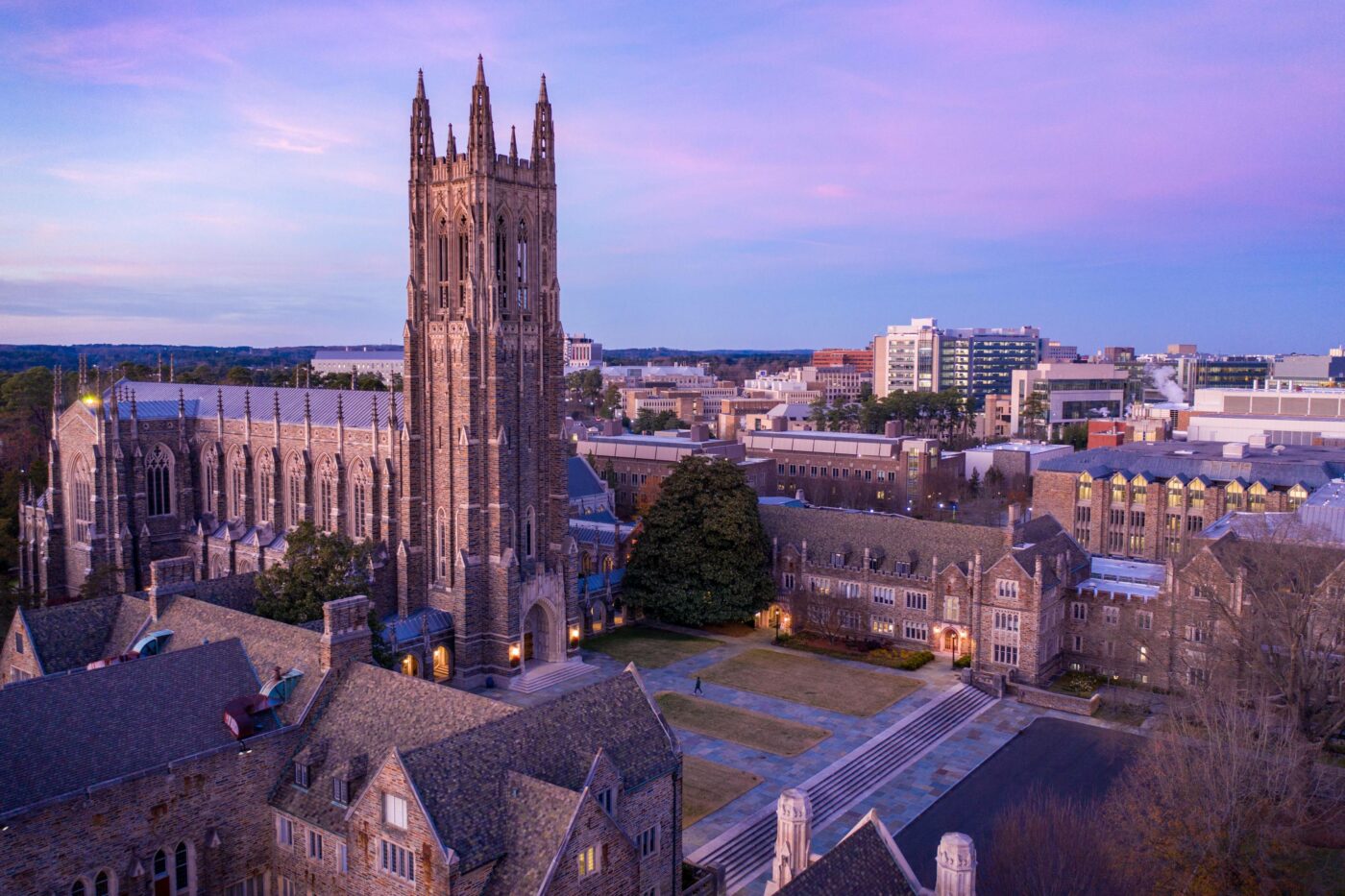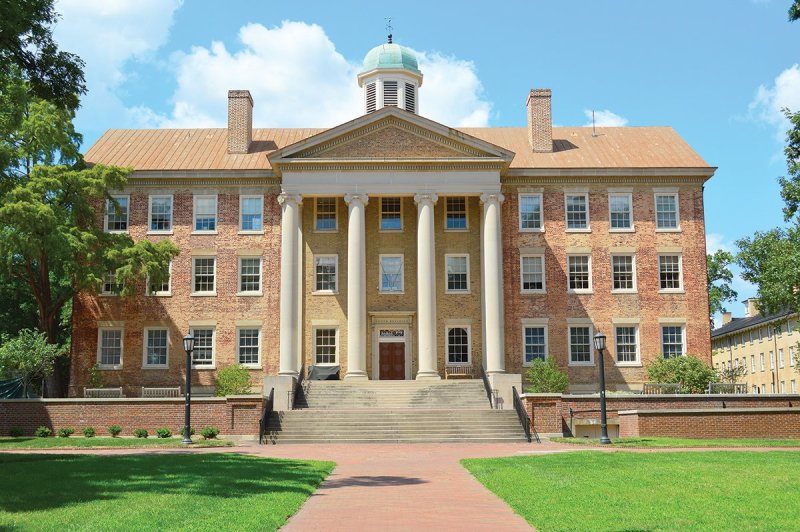Most people would agree that the job market right now is a little scary, but the fields of health care and nursing are growing rapidly!
Whether you’re looking to become an RN for the first time or want to specialize as a Nurse Practitioner with an MSN or a DNP, the opportunities are almost endless.
Here we look at how the best nursing schools can help you achieve your dreams.
The Johns Hopkins University is a private research university in Baltimore, Maryland. Founded in 1876, the university was named for its first benefactor, the American entrepreneur and philanthropist Johns Hopkins.…....
Agricultural Studies Biology Biotechnology Chemistry
Highlights
Known for its range of programs, its strong faculty, and its community collaborations, the Johns Hopkins School of Nursing is the best nursing school overall.
But why?
Its range of programs offers non-nurses the chance to become registered nurses through the Master of Science in Nursing, while also providing opportunities for current nurses to grow their careers with a Doctor of Nursing Practice or additional MSN degree.
To apply to the MSN (Entry into Nursing) program at this college of nursing, you need a Bachelor’s degree in any field.
For entry into the DNP nursing program or other master’s degree tracks, you need a Bachelor of Science in Nursing with a GPA of at least 3.0 in your bachelor’s degree courses and to hold your current RN license.
While Johns Hopkins is slightly pricier than some other nursing schools, the 77% scholarship/grant rate helps take care of many costs.
North Carolina is a state in the Southeastern region of the United States. North Carolina is the 28th largest and 9th-most populous of the 50 United States. It is bordered…....
Acting & Performing Arts Biology Chemistry Computer Engineering
Highlights
The selective School of Nursing at Duke offers a huge range of courses at a distance, including 8 MSN programs in fields like Psychiatric Mental Health Care, and its DNP programs in fields like Nurse Anesthetist.
Keep in mind that these programs still do require a few on-campus days each semester.
This flexibility makes the Duke School of Nursing a good choice if you’re currently a working RN who wants an additional nursing degree.
For both graduate programs, you need to be a current RN. The MSN requires a Bachelor of Science in Nursing, while the DNP requires an MSN. Both need a 3.0 GPA.
Ranked #1 in many areas by the U.S. News & World Report, this college of nursing has a prestigious reputation, which is matched by its price tag. While less than 2/5 of nursing students receive grants or scholarships, you may be able to cover the rest of the cost with loans.
Curious about other online options, including those for becoming a Nurse Anesthetist? Check out the best online nursing programs!
The Columbia Business School at Columbia University offers these departments and concentrations: accounting, consulting, economics, entrepreneurship, finance, general management, health care administration, international business, leadership, marketing, not-for-profit management, production/operations management,…....
American Conversational English American Sign Language/ASL Architecture Art
Highlights
If you hope to be a nurse practitioner, Columbia University School of Nursing’s 6 DNP programs allow you to grow your career. If you have a BS or an MS nursing degree and are currently working as an RN, this program may be right for you.
At just 2.5 years of study, the Columbia School of Nursing‘s DNP track is on the shorter side for this type of program.
Though its high price tag may make this college of nursing seem inaccessible, 99% of DNP nursing students receive grants or scholarships. Explore all of your financial aid options for this Ivy League nursing program!
University of Washington is a public institution that was founded in 1861. It has a total undergraduate enrollment of 35,582 (fall 2020), its setting is urban, and the campus size…....
Art Art History Biology BSN Program
Highlights
With a low price point, the School of Nursing at the University of Washington is an excellent place to get your first degree in nursing with a traditional BSN/nursing major.
It offers both a traditional Bachelor of Science in Nursing program (2 years) and an accelerated BSN program (1 year) at an accessible price point.
The School of Nursing at the University of Washington also has a high acceptance rate for the master’s, but keep in mind that the Bachelor of Science in Nursing is far more competitive, accepting only around 10% of applicants to the bachelor’s degree program for the traditional BSN.
Getting accepted for the BSN is tough.
You’ll need to meet a number of prerequisites, with a 2.0 GPA for the traditional BSN program and a 2.8 for the accelerated BSN program.
Because Bachelor of Science in Nursing degrees are often entry points to becoming an RN, you’ll need to take courses on-campus for this college of nursing.
HACC, Central Pennsylvania’s Community College HACC, Central Pennsylvania’s Community College, offers a high-quality academic experience in a supportive environment at five physical campuses in Central Pennsylvania. We offer more than…....
Accounting Advertising Applied Mathematics Architecture
Highlights
With 11 MSN tracks, the School of Nursing at the University of Pennsylvania is sure to offer an MSN program that interests you. There are advanced specialty programs and administration programs, as well.
Requiring 12 courses, the MSN degrees at UPenn take 1-3 calendar years to finish. This allows nursing students to pick a minor focus, as well as their major field of study.
If you haven’t completed your bachelor’s degree part of your nursing education yet, there is also an accelerated BSN-MSN option at this college of nursing. Similarly, if you want to continue to get your Ph.D., the school also offers an MSN-PhD track.
To be accepted at the UPenn School of Nursing, you’ll need a Bachelor of Science in Nursing that included a statistics course, with a minimum GPA of 3.0. You’ll have to take the GRE unless you had a GPA of above 3.2 at a US bachelor’s degree program (BSN program).
University of North Carolina—Chapel Hill is a public institution that was founded in 1789. It has a total undergraduate enrollment of 19,399 (fall 2020), its setting is suburban, and the…....
BSN Program Computer Science Linguistics Political Science
Highlights
With an impressive student-to-faculty ratio of 1.2 to 1 in the master’s programs, the University of North Carolina School of Nursing has a small school size.
It also boasts a highly experienced faculty. Unlike some other nursing schools’ faculty, 95% of UNC nursing professors are currently in active nursing practice.
Because UNC is a public school, tuition costs are lower than at a comparable private school, particularly for in-state students. However, you need to weigh this against the relatively low percentage of students who receive grants or scholarships.
Admission requirements at UNC vary depending on which program you’re applying to. You can apply to the Bachelor of Science in Nursing without a nursing degree if you’ve met the prereqs, but graduate nursing programs have different requirements.
For the BSN to MSN, you’ll need a BSN with a 2.75 GPA. For the RN to MSN, you need an AD in nursing with a 2.75 GPA and prerequisite courses.
For the DNP, you’ll need a 3.0 GPA in your BSN program or a 3.25 GPA in your MSN.
So what is a BSN in nursing anyway?
A BSN is a Bachelor of Science in Nursing. It is often the first step in nursing education. A traditional BSN is a 4-year nursing degree. Some nursing schools offer accelerated BSN programs, letting you finish the program more quickly.
While an RN program typically doesn’t require more than an Associate Degree, competitive positions increasingly require a BSN. If you’re thinking about becoming a nurse practitioner, you’ll also need a BSN on the way to your MSN or DNP.
However, a BSN alone won’t allow you to become a nurse practitioner.
High school students shouldn’t plan on enrolling in a BSN program right away. These usually require at least some prior coursework.
Schools offering a BSN program focus on a combination of prerequisites and nursing courses, with some laboratory and clinical work with partner programs. Beware of schools that offer a BSN program without a clinical requirement – these schools are unlikely to prepare you well for a licensing exam or patient care.
If you already have an AD, you can find RN to BSN programs. An RN to BSN program takes less time, around 11 months on the short end and 24 months on the higher end.
How long an RN to BSN program takes will depend on the level of the programs and the prerequisites. An online RN to BSN program may take longer but be less intensive.
An ADN is a 2-year program that lets students take the courses they’ll need to become a registered nurse.
Some nursing schools offer an accelerated option, letting students finish required coursework for their nursing education in 18 months, rather than 24 months.
Many of the best nursing schools do not offer ADNs. Instead, you can find these nursing programs at local vocational and community schools.
While some employers still accept an ADN, increasingly, applicants with BSN or graduate degrees are preferred.
A CNA is not the same thing as an RN. Instead, Certified Nursing Assistants assist nurses, as the name implies.
Because of this, the nursing education time is much shorter—4 to 12 weeks—and does not require an undergraduate or graduate nursing degree.
As with ADs, CNAs often take nursing programs at local vocational schools rather than specialized nursing schools.
If you want to become a nurse practitioner, you will likely need to continue your nursing education by pursuing your master’s degree – your MSN.
An MSN is a graduate program (master’s) offered by nursing schools that usually takes around 2 years, though some accelerated options offer it in as little as one. You will need to be an RN already for entry into most MSN nursing programs at nursing schools.
However, some nursing schools may offer the ability to do a joint undergraduate-graduate degree in nursing (RN to BSN program, including online RN to BSN programs).
Do you need an MSN degree? Well, it depends on what your career goals are.
Finishing your nursing education with a DNP opens up even more career opportunities, allowing you to specialize even more in a particular subfield as a nurse practitioner, such as becoming a nurse anesthetist.
Usually, these programs offered by nursing schools involve 1-2 years of coursework followed by a research project, for a total of 2-3 years.
Because most nursing schools base their curricula on picking up where MSN programs leave off, an MSN is usually a required degree to enroll in a DNP program. However, some schools offer joint MSN-DNP programs; check with individual schools for nursing programs.
Becoming an LPN/LVN doesn’t require an undergraduate degree, though you will have to complete vocational training as part of your nursing education at vocational schools.
Depending on the speed and intensity of the program you choose, you can expect to spend 1-2 years studying to become a LPN/LVN.
According to the U.S. News & World Report ranking, Johns Hopkins is the best nursing school in the United States for a Master’s in Nursing.
This is based on their student achievement scores, their faculty credentials, research conducted there, and how their peers and other experts rate the schools
The short answer is Johns Hopkins, overall. However, depending on your specialty or the degree program you’re pursuing, different nursing schools may be better for you.
The best nursing schools often post their rankings in different areas on their websites. You can also look at the U.S. News & World Report ranking for a detailed breakdown of the top nursing schools in different specialist fields to find the school or schools that are right for you.
When evaluating nursing programs, always make sure they are accredited by an institution like the Commission on Collegiate Nursing Education.
Of those schools listed above, the BSN program at the University of Washington is the most competitive, accepting fewer than 10% of applicants.
However, which nursing schools are harder or easier to get into will depend on your degree level as well as your background and qualifications.
In most cases, you’ll find it difficult to get into a nursing school with less than a 2.0 GPA at the last degree level completed. For the best nursing schools in the country, such as those listed above, 2.75 or 3.0 is far more common.
However, schools do sometimes make exceptions for GPA based on work experience, letters of recommendation, and extenuating circumstances. Talk about your chances with the admissions department for your degree level directly before writing it off!
Partially, yes. However, you’ll find it impossible to become an RN entirely online because of the clinical requirements in most states.
These elements require hands-on practice in patient care, so you’ll need to be on-campus or at a clinical site for these. Therefore, most BSN programs are at least partially in-person.
With that said, many schools let you take prerequisites and non-nursing courses online, which can drastically cut down on the in-person time the degree program takes.
For graduate degrees, including the MSN and the DNP, you’ll find there are many more online options.
Attending a top nursing program, like those offered at Johns Hopkins, can open up your health care career to hundreds of new opportunities.
Whether you want to become a specialist in your field or start training to become an RN, these are the best nursing schools available in the US.
Are you an aspiring nurse or nurse practitioner? What schools are you looking at? Let us know in the comments below!
© 2024 AcademiaLabs | All Rights Reserved